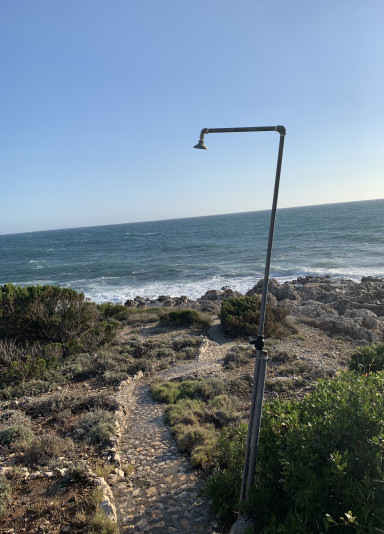

Stephan
Zilkens
,
Zilkens' News Blog 38 2024
The heavens pour down over southern Germany, Austria, the Czech Republic and Poland. The deluge causes rivers to swell and it is possible that Brandenburg will experience flooding before the elections, pushing the transport capacity of the Oder to its limits. The migrants can't be held responsible for the flood. Let's hope that the culture and its buildings along the rivers remain.
Cologne's head of the cultural department, Charles, is truly not to be envied - his area of responsibility includes museums whose maintenance backlog will eventually lead to their closure (without alternatives for presenting quite significant collections) and a theatre and an opera house that have now been waiting more than 13 years for the renovation work to be completed - with the total costs exceeding the originally planned costs of around 250 million euros by a factor of five. Ultimately, these are all funds that are lacking for constructive public cultural work. Interestingly, however, he is not interested in revealing the causes. He would have to step on the toes of many a colleague in the bureaucratic machine: for example, in the building authority, where new regulations prevent the acceptance of construction work because the current ones are used instead of those at the time of the contract award, or in the tendering process, which slows down, bureaucratises and makes processes more expensive. Instead, he wants to look ahead – there are empty coffers and a declining understanding of art and culture and, as a consequence, even fewer funds for even less culture – in short, Cologne is also faltering culturally.
Back to the floods: the trade fairs in Vienna suffered from the flood or were even postponed for a week. The trains didn't run, the underground was flooded and external collectors were difficult to persuade to come to Vienna in this situation. This raises the question of business interruption insurance. This is not an issue for normal companies – they insure against this because they are aware that they have ongoing costs for staff, rent, etc., even if operations are at a standstill due to the damage. In the cultural sector, some of the offers from the insurance industry are difficult to communicate: in addition to cyber insurance, this also includes business interruption insurance. Traditionally, the sum insured for business interruption is calculated on the basis of the margin contribution in a period (6, 12, 18 or 24 months) - but this fluctuates quite a bit in galleries and nobody really wants to disclose it. This is actually a shame, because there is nothing indecent about making a profit with entrepreneurial courage or getting a really good deal on a single work of art. In the 1970s, some art dealers/gallerists sold only one painting a year and still made a good living from it.
Schenker – the previously state-owned – has also transported art from time to time; mostly for public clients who wanted to save money, which is more likely to succeed with a publicly financed company – goes to DSV, the Danish globally operating logistics company that does everything possible, just not transport art with systematic expertise. Liability is more of a management issue for the mammoth undertaking, if it is considered at all. Deutsche Bahn is receiving 14 billion for this. This money will be used to plug holes. Will Deutsche Bahn now become more punctual and better?
The positions in Berlin have also come to an end - Zilkens Fine Art Switzerland was allowed to award the best exhibition booth and the prize went to Galerie Weinberger Schandorf from Copenhagen - a second prize was awarded to Galerie Kodl Contemporary from Prague. We are happy for the winners.
On 30 September, Stefan Kobel and I will be discussing, moderated by Susanne Schreiber from Handelsblatt, in the series Art in Context at the Museum Ludwig in Cologne at 7:00 p.m. Registrations via the Gesellschaft für Moderne Kunst at the Museum Ludwig in Cologne.
Have a powerful week and for those affected by the floods, we wish you strength and quickly paying insurance companies
stay with us
and greetings for the new week from Stephan Zilkens and the team at Zilkens Fine Art Insurance Brokers in Cologne and Solothurn
automatically translated